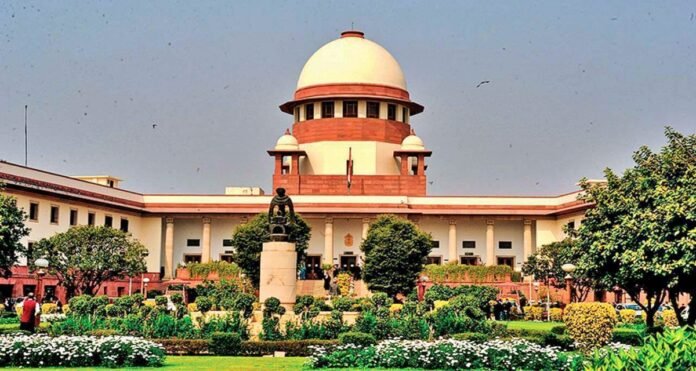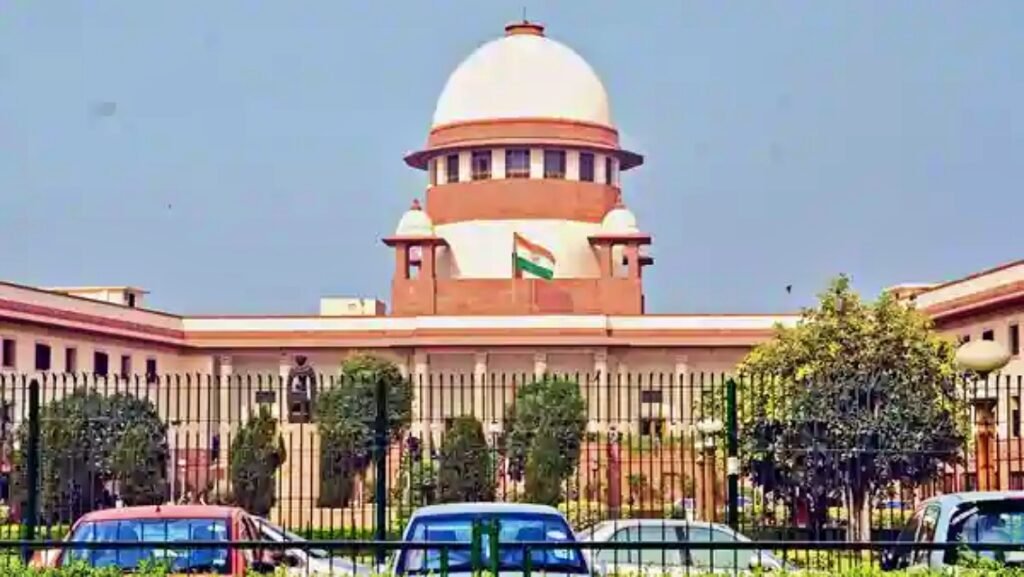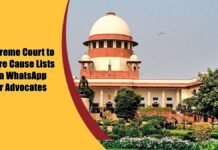
New Delhi: The Supreme Court said that under the provisions of the Scheduled Castes and Scheduled Tribes Prevention of Atrocities Act, 1989 (SC / ST Act), it is desirable to mention at least those words in the charge sheet before prosecuting a person Whatever the accused has said in front of the people. This will enable the courts to ascertain whether a case under the SC/ST Act is made out in the charge sheet before taking cognizance of the offense.
Explain that the Supreme Court was hearing a case in which a charge sheet was filed against a person under section three (1) (10) of the SC-ST Act. This section deals with intentionally insulting or threatening a member of SC or ST in a place visible to the public with a view to bringing shame upon him. A bench of Justices Ravindra Bhat and Justice Dipankar Datta observed that the intention of the Legislature appears to be clear that every insult or threat to shame shall not constitute an offense under Section 3(1)(10) of the SC-ST Act unless this should not be done just because the victim is SC or ST.
The court said that if someone calls another person an idiot, a fool, or a thief in a public place, it would definitely be an act of intentionally insulting or embarrassing by using abusive language or indecent language. Even if these words are used against SC or ST, in the absence of caste-specific comments, they will not be sufficient to apply Section-3(1)(10).
What does Section-18 of the SC/ST Act say?
The Supreme Court said that Section-18 of the SC/ST Act prohibits the enforcement of the court’s jurisdiction under Section-438 of the CrPC. This section deals with granting bail to a person apprehending arrest. The Supreme Court, which quashed the criminal proceedings against the accused, said that the FIR registered against him or the charge sheet filed against him does not mention that at the time of the incident, anyone other than the complainant and his two family members was present at that place. Therefore, even if the appellant had said something which was not visible to the public, then the essential element of Section 3(1)(10) of the SC/ST Act is absent.
The Court also noted that there was no mention of the caste of the complainant or the statements of the appellant during the oral argument in the FIR and the charge sheet, except for the allegation that caste-related abuses were uttered. The Supreme Court was hearing an appeal against the Allahabad High Court judgment of May last year, which had rejected the application under Section 482 of the CrPC.

What was demanded from the Supreme Court
In the appeal, a demand was made to quash the charge sheet and pending criminal proceedings against the appellant. The Court noted that an FIR was registered against the appellant in January 2016 and after the investigation, which was completed within a day, the Investigating Officer had registered offenses under various sections of the IPC and Section 3(1) of the SC-ST Act. (10) charge sheet was filed for the offenses alleged under. The appellant had approached the High Court seeking quashing of the criminal proceedings on the ground that no offense was alleged in the charge sheet and the prosecution was conducted with the intention to harass.
Setting aside the High Court order, the Supreme Court observed that completing the investigation in a case within a day may be commendable, but in the present case, it is more inconsistent than serving justice.














































